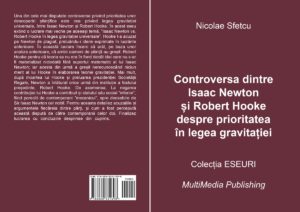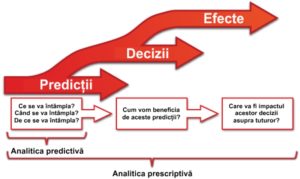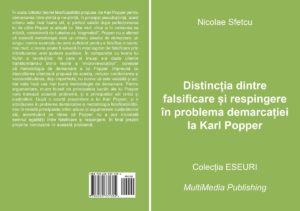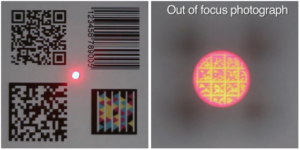Before installing WordPress you need to check:
1. That your host fulfills the necessary conditions (no panic, most of them meet it).
2. That you have the skills (do not worry, it’s not so difficult).
These two conditions should not be a problem, but it is wise to check it before you start.
Category: Download
Problems with translation
According to the school of thought of target-oriented translation, it is necessary to focus on the accuracy of the remarks at the expense of style, when necessary.
Most freelance translators, telling that they are specialized in just about everything, contradict the term of specialization. It is obvious that their behavior is looking for maximum translation work.
A well-known difficulty for translators, but there is little awareness outside of them, is the fact that the text to be translated is often already a translation, not necessarily true, and it must, to the extent possible, to try passing it back to the original.
For a “smart”, sensible translation, you should forget not the knowledge acquired at school or university, but the corrective standards. Some people want a translation with the touch of the source version, while another people feel that in a successful version, we should not be able to guess the original language.
Criticism of Falsifiability
Thomas Kuhn criticized falsifiability because it characterized “the entire scientific enterprise in terms that apply only to its occasional revolutionary parts,” and it cannot be generalized. In Kuhn’s view, a delimitation criterion must refer to the functioning of normal science. Kuhn objects to Popper’s entire theory and excludes any possibility of rational reconstruction of the development of science. Imre Lakatos said that if a theory is scientific or non-scientific, it can be determined independently of the facts.He proposed a modification of Popper’s criterion, which he called “sophisticated (methodological) falsification”.
DOI: 10.13140/RG.2.2.30572.82568
Easter Celebration
 Easter is the most important solemnity (just before Christmas) of the Church. It is the first of the five cardinal feasts of the Catholic liturgical year. Easter commemorates the resurrection of Jesus Christ laid down by the Bible, the third day after his passion. The solemnity begins on Easter Sunday, which for Catholics mark the end of fasting of Lent, and lasts for eight days (Easter week, or week or radiant, or week of eight Sundays).
Easter is the most important solemnity (just before Christmas) of the Church. It is the first of the five cardinal feasts of the Catholic liturgical year. Easter commemorates the resurrection of Jesus Christ laid down by the Bible, the third day after his passion. The solemnity begins on Easter Sunday, which for Catholics mark the end of fasting of Lent, and lasts for eight days (Easter week, or week or radiant, or week of eight Sundays).
Many customs dating back to ancient times designed to accommodate the return of spring attached themselves to Easter. The egg is the symbol of germination occurs in early spring. Similarly, the hare is an ancient symbol which has always represented fertility.
The custom of the Easter egg was found among Coptic Christians from the late fifth century, it is perhaps in memory of ardent eggs (ova ignita) with which the martyrs were tortured or red egg laid by an imperial hen the day of the birth of Alexander Severus in 208 BC. The tradition of offering eggs in spring dates back to antiquity: the Persians, the Egyptians offered, as a lucky, decorated hen eggs as renewal sign.
The rabbit once symbolizing fertility and renewal (like spring), it was in Upper Germany where was born the tradition (Osterhase) before it spreads in the Germanic countries. Subsequently, this tradition is exported to the United States by German immigrants in the eighteenth century.
CONTENTS:
Easter
– Date history
– Religious celebrations
– – Catholic Church
– – Orthodox and Eastern Churches
– – Evangelical Church
– Popular festivals and traditions
– Easter eggs
– Easter eggs
– – Symbolic
– – History
– – – The red eggs
– – – Painted eggs, pissanka and precious eggs
– – – Chocolate eggs
– – Games and traditions
– – – Egg hunting
– – – Egg rolling
– – – Egg battles
– Ash Wednesday
– Paschal Triduum
– Easter Water
– – Picking the Easter Water
– – Properties of Easter Water
– – – Physical properties
– – – Spiritual or magical properties
– – Washing in Water Easter
– Paschal candle
– – Rite of fire at Easter
– – Using the paschal candle
– Easter Monday
– – Liturgical and religious significance
– – Folk customs for Easter Monday
– Easter Bunny
– – Origin
– – Alternatives
– Osterbrunnen
Easter food
– Pastiera
– – Origins
– – – Mythical origin
– – – Other origins
– – Tradition
– – Features
MultiMedia Publishing House Edition: https://www.telework.ro/en/e-books/easter-celebration/
Falsification and refutation
 A scientific theory, according to Popper, can be legitimately saved from falsification by introducing an auxiliary hypothesis to generate new, falsifiable predictions. Also, if there are suspicions of bias or error, the researchers might introduce an auxiliary falsifiable hypothesis that would allow testing. But this technique can not solve the problem in general, because any auxiliary hypothesis can be challenged in the same way, ad infinitum. To solve this regression, Popper introduces the idea of a basic statement, an empirical statement that can be used both to determine whether a given theory is falsifiable and, if necessary, to corroborate falsification assumptions.
A scientific theory, according to Popper, can be legitimately saved from falsification by introducing an auxiliary hypothesis to generate new, falsifiable predictions. Also, if there are suspicions of bias or error, the researchers might introduce an auxiliary falsifiable hypothesis that would allow testing. But this technique can not solve the problem in general, because any auxiliary hypothesis can be challenged in the same way, ad infinitum. To solve this regression, Popper introduces the idea of a basic statement, an empirical statement that can be used both to determine whether a given theory is falsifiable and, if necessary, to corroborate falsification assumptions.
DOI: 10.13140/RG.2.2.22162.09923
Isaac Newton vs. Robert Hooke on the law of universal gravitation
 One of the most disputed controversy over the priority of scientific discoveries is that of the law of universal gravitation, between Isaac Newton and Robert Hooke. Hooke accused Newton of plagiarism, of taking over his ideas expressed in previous works. In this paper I try to show, on the basis of previous analysis, that both scientists were wrong: Robert Hooke because his theory was basically only ideas that would never have materialized without Isaac Newton’s mathematical support; and the latter was wrong by not recognizing Hooke’s ideas in drawing up the theory of gravity. Moreover, after Hooke’s death and taking over the Royal Society presidency, Newton removed from the institution any trace of the former president Robert Hooke. For this, I detail the accusations and arguments of each of the parts, and how this dispute was perceived by the contemporaries of the two scientists. I finish the paper with the conclusions drawn from the contents.
One of the most disputed controversy over the priority of scientific discoveries is that of the law of universal gravitation, between Isaac Newton and Robert Hooke. Hooke accused Newton of plagiarism, of taking over his ideas expressed in previous works. In this paper I try to show, on the basis of previous analysis, that both scientists were wrong: Robert Hooke because his theory was basically only ideas that would never have materialized without Isaac Newton’s mathematical support; and the latter was wrong by not recognizing Hooke’s ideas in drawing up the theory of gravity. Moreover, after Hooke’s death and taking over the Royal Society presidency, Newton removed from the institution any trace of the former president Robert Hooke. For this, I detail the accusations and arguments of each of the parts, and how this dispute was perceived by the contemporaries of the two scientists. I finish the paper with the conclusions drawn from the contents.
Keywords: Isaac Newton, Robert Hooke, law of gravity, priority, plagiarism
CONTENTS
Abstract
Introduction
Robert Hooke’s contribution to the law of universal gravitation
Isaac Newton’s contribution to the law of universal gravitation
Robert Hooke’s claim of his priority on the law of universal gravitation
Newton’s defense
The controversy in the opinion of other contemporary scientists
What the supporters of Isaac Newton say
What the supporters of Robert Hooke say
Conclusions
Bibliography
14.01.2019
DOI: 10.13140/RG.2.2.19370.26567
MultiMedia Publishing EPUB (ISBN 978-606-033-206-0), Kindle (ISBN 978-606-033-205-3), PDF (ISBN 978-606-033-204-6) https://www.telework.ro/en/e-books/isaac-newton-vs-robert-hooke-on-the-law-of-universal-gravitation/
Isaac Newton vs. Robert Hooke on the law of universal gravitation
Blockchain Design and Modelling
 Ontology engineering, along with semantic Web technologies, allow the semantic development and modeling of the operational flow required for blockchain design. The semantic Web, in accordance with W3C, “provides a common framework that allows data to be shared and reused across application, enterprise, and community boundaries” and can be seen as an integrator for various content, applications and information systems. The most widely used blockchain modelling system, by abstract representation, description and definition of structure, processes, information and resources, is the enterprises modelling. Enterprise modelling uses domain ontologies by model representation languages.
Ontology engineering, along with semantic Web technologies, allow the semantic development and modeling of the operational flow required for blockchain design. The semantic Web, in accordance with W3C, “provides a common framework that allows data to be shared and reused across application, enterprise, and community boundaries” and can be seen as an integrator for various content, applications and information systems. The most widely used blockchain modelling system, by abstract representation, description and definition of structure, processes, information and resources, is the enterprises modelling. Enterprise modelling uses domain ontologies by model representation languages.
DOI: 10.13140/RG.2.2.19062.24642
The distinction between falsification and refutation in the demarcation problem of Karl Popper
 Despite the criticism of Karl Popper’s falsifiability theory for the demarcation between science and non-science, mainly pseudo-science, this criterion is still very useful, and perfectly valid after it was perfected by Popper and his followers. Moreover, even in his original version, considered by Lakatos as “dogmatic”, Popper did not assert that this methodology is an absolute demarcation criterion: a single counter-example is not enough to falsify a theory; a theory can legitimately be saved from falsification by introducing an auxiliary hypothesis. Compared to Kuhn’s theory of revolutions, which he himself later dissociated from it transforming it into a theory of “micro-revolutions,” I consider that Popper’s demarcation methodology, along with the subsequent development proposed by him, including the corroboration and the verisimilitude, though imperfect, is not only valid today, but it is still the best demarcation methodology. For argumentation, I used the main works of Popper dealing with this issue, and his main critics and supporters. After a brief presentation of Karl Popper, and an introduction to the demarcation problem and the falsification methodology, I review the main criticisms and the arguments of his supporters, emphasizing the idea that Popper has never put the sign of equality between falsification and rejection. Finally, I present my own conclusions on this issue.
Despite the criticism of Karl Popper’s falsifiability theory for the demarcation between science and non-science, mainly pseudo-science, this criterion is still very useful, and perfectly valid after it was perfected by Popper and his followers. Moreover, even in his original version, considered by Lakatos as “dogmatic”, Popper did not assert that this methodology is an absolute demarcation criterion: a single counter-example is not enough to falsify a theory; a theory can legitimately be saved from falsification by introducing an auxiliary hypothesis. Compared to Kuhn’s theory of revolutions, which he himself later dissociated from it transforming it into a theory of “micro-revolutions,” I consider that Popper’s demarcation methodology, along with the subsequent development proposed by him, including the corroboration and the verisimilitude, though imperfect, is not only valid today, but it is still the best demarcation methodology. For argumentation, I used the main works of Popper dealing with this issue, and his main critics and supporters. After a brief presentation of Karl Popper, and an introduction to the demarcation problem and the falsification methodology, I review the main criticisms and the arguments of his supporters, emphasizing the idea that Popper has never put the sign of equality between falsification and rejection. Finally, I present my own conclusions on this issue.
Keywords: Karl Popper, falsifiability, falsification, demarcation problem, pseudo-science
CONTENTS
Abstract
Introduction
1 The demarcation problem
2 Pseudoscience
3 Falsifiability
4 Falsification and refutation
5 Extension of falsifiability
6 Criticism of falsifiability
7 Support of falsifiability
8 The current trend
Conclusions
Bibliography
Notes
DOI: 10.13140/RG.2.2.22522.54725
(28.02.2019)
MultiMedia Publishing EPUB (ISBN 978-606-033-209-1), Kindle (ISBN 978-606-033-208-4), PDF (ISBN 978-606-033-207-7) https://www.telework.ro/ro/e-books/the-distinction-between-falsification-and-refutation-in-the-demarcation-problem-of-karl-popper/
The distinction between falsification and refutation in the demarcation problem of Karl Popper
Editing and Publishing e-Books
 You wrote a book. Very nice. But you didn’t write to keep it for you. You should publish it. The problem is that the publishers charge high prices for some authors pockets, and do it objectively, due to the high cost of printing.
You wrote a book. Very nice. But you didn’t write to keep it for you. You should publish it. The problem is that the publishers charge high prices for some authors pockets, and do it objectively, due to the high cost of printing.
But you allowed that luxury, and now you have a printed book, with you as the author. You can keep hundreds or thousands of volumes in your personal library and give it as a gift to your friends in special occasions, or try to distribute in various libraries. You managed to distribute it, the book is beautifully placed in shelves. In time, dust is spread on covers. After a while, the book is withdrawn. It remains to use it as decoration at home, or support for various household items.
But lucky for you, there is an alternative, cheaper and more effective, in selling your book: e-Books!
e-Book and online publishing market has evolved rapidly in recent years, and a lot of companies have entered this market, as publishers, online bookstores, or promoting e-books.
CONTENTS:
Books
– The Book Science
– Book chain
– – Creation
– – Production
– – Marketing
– – Other forms of secondary spread
– – Evolution of the book industry
– Book economics
– – Descriptive elements
– – – Reading and editing
– – – The Book market
– – Writing and editing books
– – – An endless supply of writers?
– – – Publishing contracts
– – Book market theory
– – – Differentiated products with uncertain prospects
– – – Booksellers, prescribers and word of mouth
Editing
– Calibre
– – Management of one or more libraries
– – – Structure
– – – User Interface
– – – Virtual or separate libraries
– – e-Book conversion to various digital formats
– – Synchronization with e-readers and other e-book reading devices
– – – Managed e-readers
– – Downloading articles from the web and publishing as a digital book
– – e-Reader
– – Content server for online access to its collection of books
– – Calibre and DRM
– iBooks Author
– Sigil
Publishing
– Book publishing
– Book manufacturing and trade
– – Creation
– – From the author to the publisher
– – From the publisher to the printer
– – Printing
– – Marketing
– Intellectual activity
– Publishing houses
– Vanity press
– – Commercial service
– – Conditions
– Small press
– – Definitions
– – – Pragmatic definition
– – – Independent publishers facing the majors publishers
– – – Proposals to reform the publishing industry
– Self-publishing
– – Stages of publication
– – Market
– Print on demand
– – Benefits
– – Applications
– – Dedicated machines
Electronic publishing
– Network edition
– The web content
– Print on demand
– Free license vs. proprietary license
– Project Gutenberg
– The digital edition
– The “ideal” characteristics of the electronic text
– – Readability
– – Maneuverability
– – Quotability
– – Localization
– – Impacts
– COUNTER
– Open access
– – Authors and researchers
e-Books
– Advantages and disadvantages
– – Maneuverability
– – Accessibility
– – Independence of the reading device
– – Risks
– History
– Digital Rights Management (DRM)
– – Watermarking
– – Free books
e-Book formats
– EPUB
– – Concept
– – Reading material
– – – eReaders
– – – Smartphones and tablets
– – Software
– – – EPUB Managers
– – – EPUB Readers
– – – EPUB Editors
– – – Word processing and desktop publishing software exporting to EPUB
– – – EPUB Converters
– MP3 files
– – Uses
– – Utilizations
– PDF documents (Portable Document Format)
– Word DOC documents
– – Alternatives
– ZIP files
– – Decompression programs
– – Tips
e-Readers
– History of e-book readers
– e-Book reader specifications
– e-Books or paper book?
– – Benefits
– – Disadvantages
– Environmental impact
– Amazon Kindle
– – Description and features
– iBooks
– – Presentation
– – Installation
– – Operation
– – Formats
– Nook
– – Technical specifications
– Scribd
– – Supported formats
– – Products and features
Quotes
References
Abouth the author
– Nicolae Sfetcu
– – By the same author
– – Contact
Publishing House
– MultiMedia Publishing
MultiMedia Publishing: https://www.telework.ro/en/e-books/editing-publishing-e-books/
Lakatos on justificationism
 According to the scientific “justificationist” method, knowledge consisted of proven sentences. Classical intellectuals (or “rationalists,” in the narrow sense of the term) have accepted extremely varied – and powerful “proofs“, through revelation, intellectual intuition, experience. These, with the help of logic, have allowed them to prove any kind of scientific statement. Classical empiricists accepted as axioms only a relatively small set of “factual propositions” that expressed “hard facts”. The value of their truth has been established by experience and has been the empirical basis of science.
According to the scientific “justificationist” method, knowledge consisted of proven sentences. Classical intellectuals (or “rationalists,” in the narrow sense of the term) have accepted extremely varied – and powerful “proofs“, through revelation, intellectual intuition, experience. These, with the help of logic, have allowed them to prove any kind of scientific statement. Classical empiricists accepted as axioms only a relatively small set of “factual propositions” that expressed “hard facts”. The value of their truth has been established by experience and has been the empirical basis of science.
DOI: 10.13140/RG.2.2.28722.25288